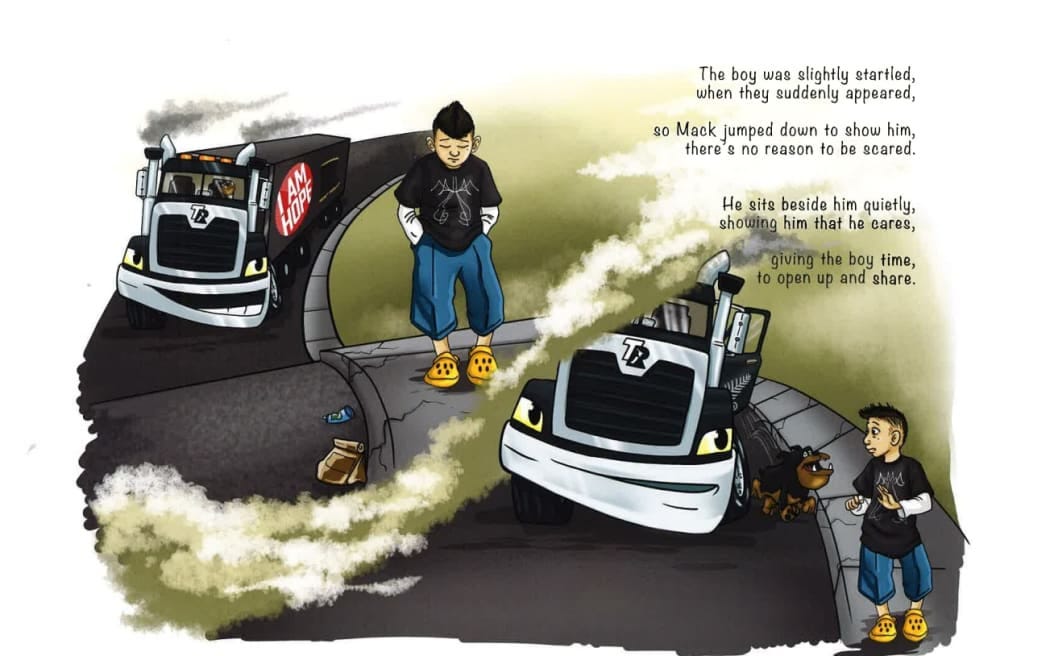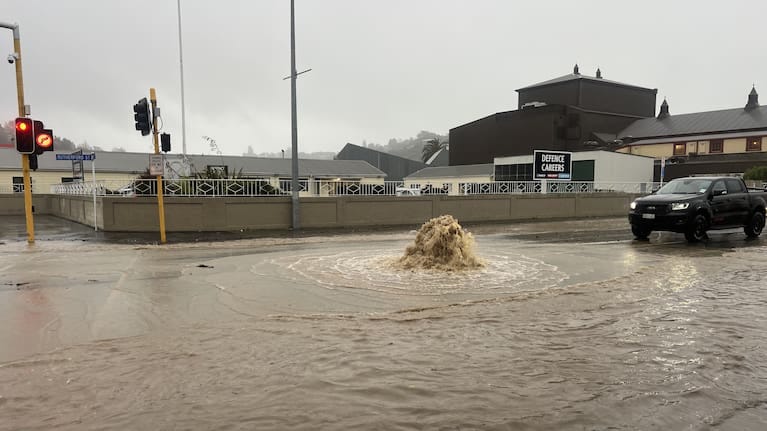“Can you have a peaceful revolution?”
The climate crisis will usher in a new age, but it’s up to us how we meet it.
“Trump’s win was the triumph of capitalism and neoliberalism, and he’s going to wreak havoc. There’s nothing we can do about that, except maybe incremental changes. That’s not what we need. We need revolution. Can you have a peaceful revolution? I don’t know.”
David Suzuki
Well, David Suzuki has called it, and so I feel compelled to join in the chorus:
We have lost the fight against global warming.
We have lost it to ourselves.
Our “incremental change” philosophy has incrementally led us into disaster. Despite successfully preserving the ozone layer through our collective actions, humanity has blitzed through the limits of 7 of the other 8 planetary boundaries that sustain life on this planet, while in 2024, we passed the 1.5 degrees of warming threshhold that would limit climate change to simply ‘devastating’, and are now eying our next milestone – total annihilation.
Climate change has occurred, and it is irreversible. The only question now is the extent of the damage.
Earlier this year, my friend experienced his first psychotic episode. It was about climate change. Like the epidemic of climate anxiety infecting our children – which our trucking companies have published propogandist literature about via Mike King’s school mental health contracts to “solve” – the only people who are willing to see the trajectory we are on are paralysed by their helplessness to stop it. Too invested in the future to look away, they are being driven mad, quite literally, by our senseless commitment to our own destruction.

During his psychosis, he and I fought the devil to save humanity from itself. (We won -- you’re welcome). Even though he was certifiably crazy, and he was committed to and treated by Hillmorton Hospital for this, his mentally-ill reaction to the realisation that our world has moved past saving is perhaps the sanest, most reasonable thing I’ve ever heard. He’s not nuts – we are, all of us, for barely reacting to this very real extinction event that we are living through and causing with our actions.
We’ve yet to see the full range of consequences the climate catastrophe will have, and that’s allowed people to bury their heads in the sand. But such ignorance is becoming harder to maintain by the day, and the children and the crazies are simply the canaries in the coalmine, unable to ignore the reality staring us stark in the face.
Climate change isn’t a threat. It’s over.
The planet we live on is now and forever entirely different to the one we were born onto. There is no going back. The extreme events we are beginning to see unfold globally and at home are not unusual occurrences; they are our new norm. We live in the Disaster Age, where natural events are not occasional; they are regular, constant occurrences. The death and destruction that devastates cities (and then boosts entire regions through unrelated economic downturns with their resulting construction boom, a promising pattern that has repeated over and over again in New Zealand’s history) is not to be a once-a-decade event anymore but something we will face year on year on year, season on season. Month on month.
This is a fact. It is one we must get to grips with, and we must do it quickly. We have lost so much time arguing amongst ourselves about how to stop global warming that we have failed to do very much of any of it, and as such, the habitability of Earth is now greatly reduced and will only continue to decline for decades to come.
For years, the focus has been on prevention, then on mitigation. Now we must move to a new phase: adaptation.
Communities will form the hub of the response for climate disasters of any scale due to practicality and proximity. Government’s job will become to fund and facilitate.
New Zealand has always been exceptionally well-positioned to respond to natural disasters in an economic sense due to our early acknowledgement of our need for financial preparedness. That is why we handily already have a natural disaster fund ready to go.
The Natural Hazards Commission, previously known as the Earthquake Commission or EQC, was originally devised as a war insurance scheme in response to the threat of large-scale property damage during World War II. But only a year after its inception, the Wairarapa earthquakes devastated large tracts of the North Island. Though its death toll was one of New Zealand’s lowest, the financial toll and the slow speed of the relief response and rebuild prompted the government to expand the scheme to cover earthquakes too. Now in 2025, the original War Insurance Scheme has entirely shifted focus in this “post-War” world to focus on our biggest modern threats: not enemy nations, but simply the material consequences of our actions.
The assistance that EQC, now NHC, has provided in its 80+ years of responding to disasters provides us with a solid blueprint for how to formulate our response. Yes, we need plans and preparation for the inevitable disaster events that will occur, but we also need funding. We need insurance and security and enough money set aside to guarantee rebuilding can continue even through recessions, restoring cities that, without such foresight, may fall to ruin.
There is time for grief, for fear, for anxiety, for paralysis in the face of disaster. But not much.
There is far too much to do.
Just because climate change has occurred, undeniably and irrevocably, it does not mean that all is lost. Too much can still be saved for us to succumb entirely to despair. We only need to look around us to see the potential we have, to witness what can be done to preserve, protect, adapt, and overcome.
Kiwi roam through the hills of Wellington while communities rebuild flood-ravaged countrysides like colony insects on honey. In Africa, an Aussie fights the encroaching Sahara by convincing individual farmers to grow trees while Poland ironically works to conserve our first man-made desert, created in the middle ages and now under threat from creeping greenery. Man’s struggle with the consequences of our own resource extraction is not new, but simply accelerated. And while we ruin ecologies for our own use, the wastelands we create will become a new home for new species and lifecycles.

As for the places we still have left, the fight is going on all around us.
Pick your fire and get watering.
But to do so at the required scale to actually save these spaces for ourselves, it will take a lot more than we are currently giving.
We must shift our economy to recognise the value that a capitalist system ignores. Currently our law constrains the ways capital controls society and alleviates the pressure of profit-seeking only a little; we must take this precedent and use it to shift our focus from one of self-sufficiency and self-centrism to one of communal support and environmental assimilation.
What good is wealth if you have gained it through utter destruction? It is not only immoral for a society to have billionaires, it will be the end of us.
There is a place for everyone in this new world order – and that order will establish itself in response to these changes, whether we design it or not.
In a democracy, we are constrained by what we can convince others to do and to agree to, and so compromise and willing sacrifices are needed in exchange for a shared vision of what we can achieve and become. But there is no room for extremes of wealth, and we must avoid hierarchical, top-heavy structures that consume and dominate at the expense of the collective.
If we want to sustain life, we must fund the work that maintains the environment that allows us to survive and thrive, and which contributes to our wealth and prosperity. That likely means convincing our farmers to grow trees on their productive, valuable land, just like in poverty-stricken parts of Africa. And we must recognise the brunt of the climate events that will impact their livelihoods and their lives, and the central role they will play within their own communities. They must know that the support is there for them too. No one is in this alone.
Then we must extend that support beyond ourselves even further, internationally, to those farmers in poverty who will bear even more of the burden of global warming.
When my house caught fire early Saturday morning, the entire street came out to lend us blankets and socks and shoes, and offer us cups of tea and their sitting room and cook us toast for breakfast and a lend hand or several as well anything else we might need, some of which we didn’t even have to ask for. My Dad stood next to me in someone else’s socks and a second neighbour’s jandals (he hadn’t had time to grab shoes) while we all watched firefighters swoop in and save our house for us. And they did save it. Not entirely, but we will rebuild and restore and recover. Because of each other.
As I write this, I’m still sleeping in the nearby motel our kind neighbours recommended, having not managed to secure a rental in large part due to an emergency insurance payment failing to arrive. Community came immediately. But financial contingencies come slower, yet are absolutely essential post-disaster.
I know across the motu there will be many people who find themselves in similar modes of disaster response right now as they deal with their own floods and fires and landslides and lost houses and, heaven forbid, lives. The morning of my house fire coincided with weather events all across the country, and it seems they’ve barely stopped: Nelson is still in a state of emergency at the time of writing.
Fear can be isolating, but that’s an urge we must resist.
We aren’t going through this ongoing climate disaster alone, nor will we experience the consequences of it by ourselves. We will experience them as a community, as a country, as a collective. Preparedness and setting up our systems to facilitate constant response should now be the priority, alongside capping emissions and protecting existing environments to limit the damage and save ourselves.
Only when we see what’s possible for us to do when we work together will we realise we held the power to change things this whole time.
Then the question becomes, “How?”





Great article. I’m so sorry to hear about your house and your friend 😓
I’m in the Wairarapa, and Greater Wellington Regional Council is doing great work to try and future proof the region.
Unfortunately there are climate change deniers that make it difficult.
And now the government wants to scrap regional councils. It’s pretty fucking obvious that climate change is real. How much evidence do they need??
I feel like the earth and human race is going to end up like Mad Max. I better buy a V8 Interceptor… and maybe a few guns, and a leather outfit….